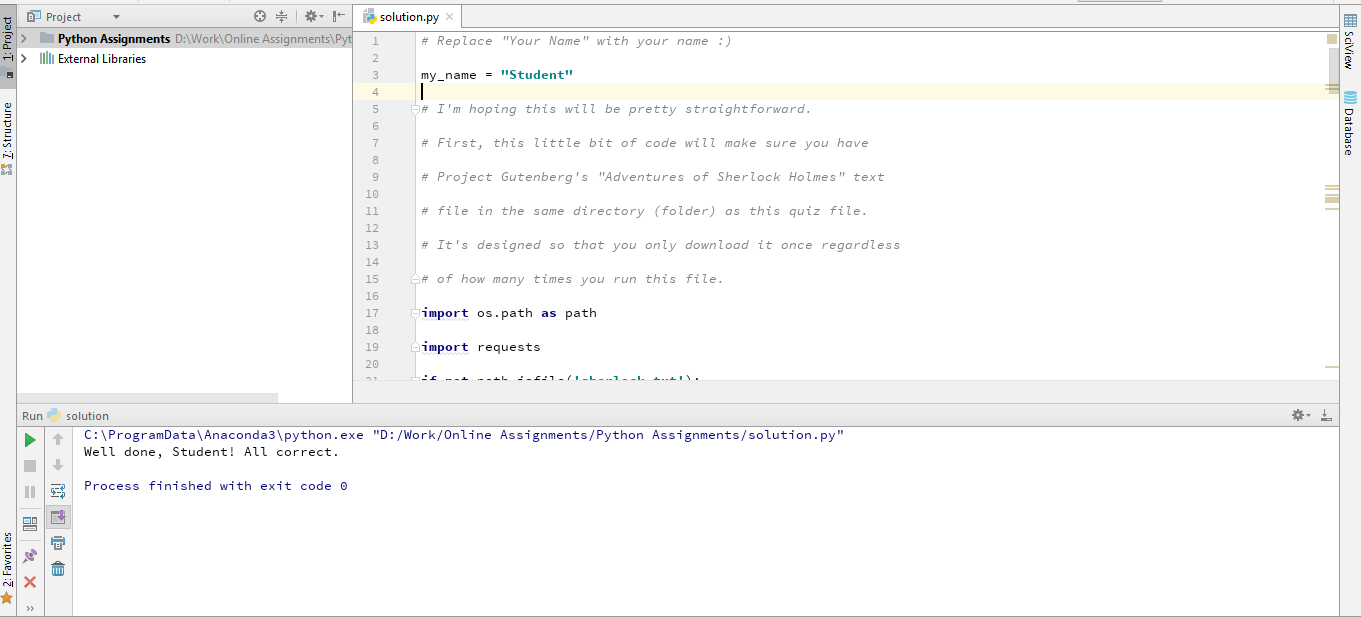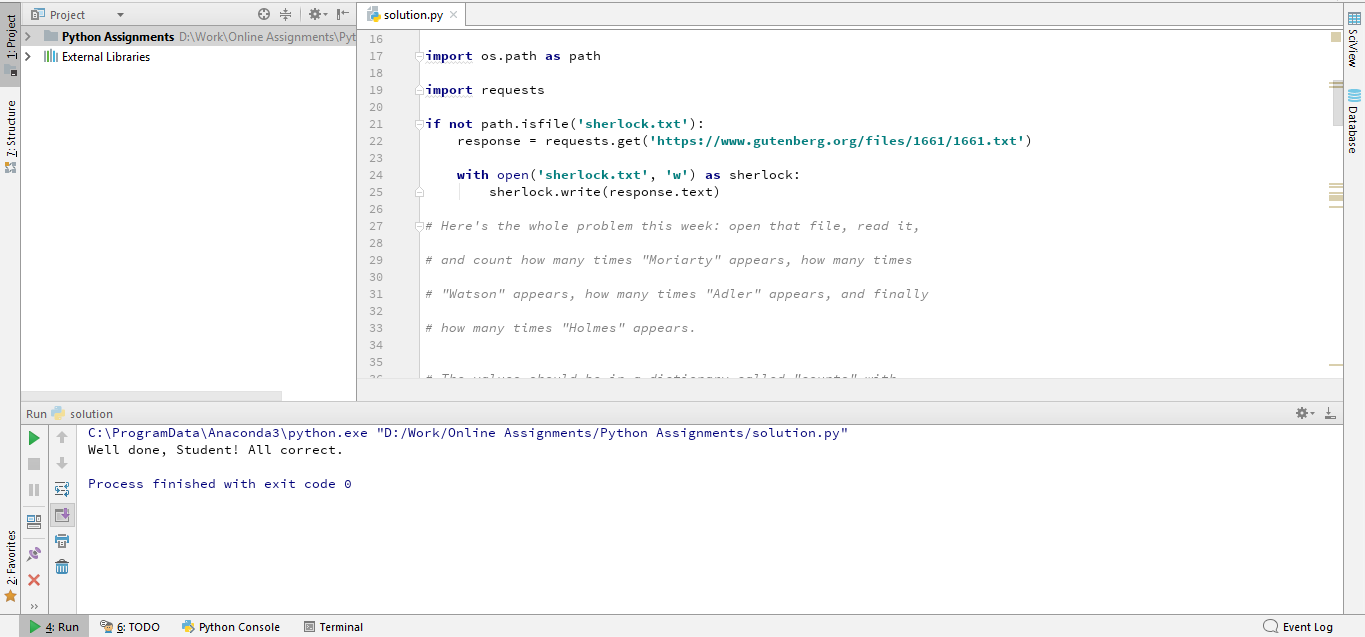Python Homework 3
# Replace "Your Name" with your name :)
my_name = "Your Name"
# I'm hoping this will be pretty straightforward.
# First, this little bit of code will make sure you have
# Project Gutenberg's "Adventures of Sherlock Holmes" text
# file in the same directory (folder) as this quiz file.
# It's designed so that you only download it once regardless
# of how many times you run this file.
import os.path as path
import requests
if not path.isfile('sherlock.txt'):
response = requests.get('https://www.gutenberg.org/files/1661/1661.txt')
with open('sherlock.txt', 'w') as sherlock:
sherlock.write(response.text)
# Here's the whole problem this week: open that file, read it,
# and count how many times "Moriarty" appears, how many times
# "Watson" appears, how many times "Adler" appears, and finally
# how many times "Holmes" appears.
# The values should be in a dictionary called "counts" with
# keys for (at least) Moriarty, Watson, Holmes, and Adler.
# IMPORTANT: if one of those names doesn't appear, then the count
# should be zero for that name
# Hints: 1. Python For Everybody walks through an example using
# a dictionary as a counter. You may or may not fund that useful.
# 2. Think about how you might find these names: could they
# appear separated by whitespace, or are there other characters
# (like punctuation) that might also be present? Is there a
# solution where this doesn't matter?
# 3. There's more than one way to approach this, but the split
# method of the re (regex) package might be useful. So might findall.
counts = {}
### Your implementation here
#### Do not modify anything below this line
try:
assert my_name != 'Your Name'
except AssertionError:
print('Please make my_name variable your actual name.')
raise
got_em_all = True
problems = []
try:
assert counts['Adler'] == 15
except AssertionError:
got_em_all = False
problems.append('Count for Adler is off.')
try:
assert counts['Watson'] == 81
except AssertionError:
got_em_all = False
problems.append('Count for Watson is off.')
try:
assert counts['Holmes'] == 461
except AssertionError:
got_em_all = False
problems.append('Count for Holmes is off.')
try:
assert counts['Moriarty'] == 0
except AssertionError:
got_em_all = False
problems.append('Count for Moriarty is off.')
except KeyError:
got_em_all = False
problems.append('Read the instructions carefully!')
if got_em_all:
print(f'Well done, {my_name}! All correct.')
else:
print('Not quite there, yet:')
print('\n'.join(problems))
Need a custom answer at your budget?
This assignment has been answered 5 times in private sessions.
Or buy a ready solution below.




